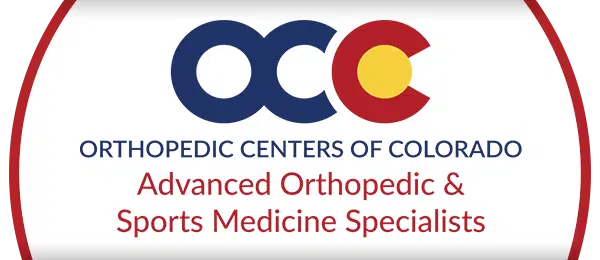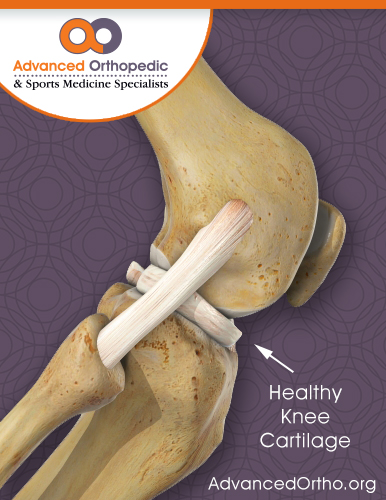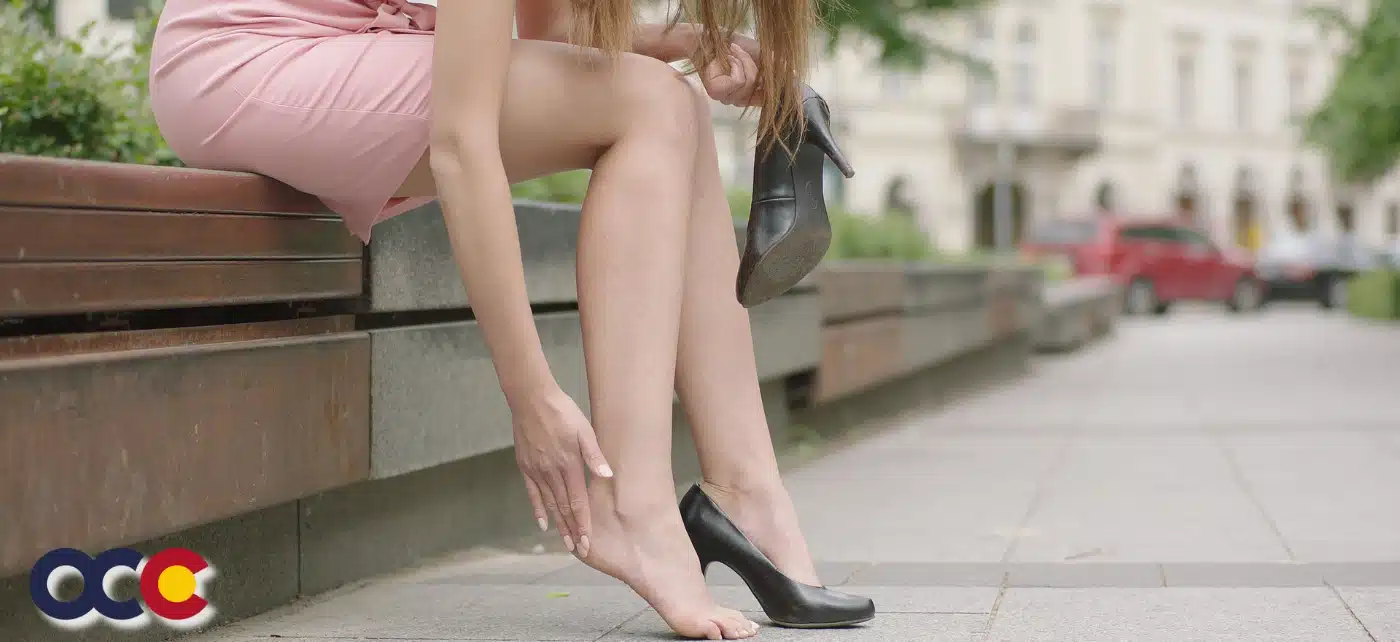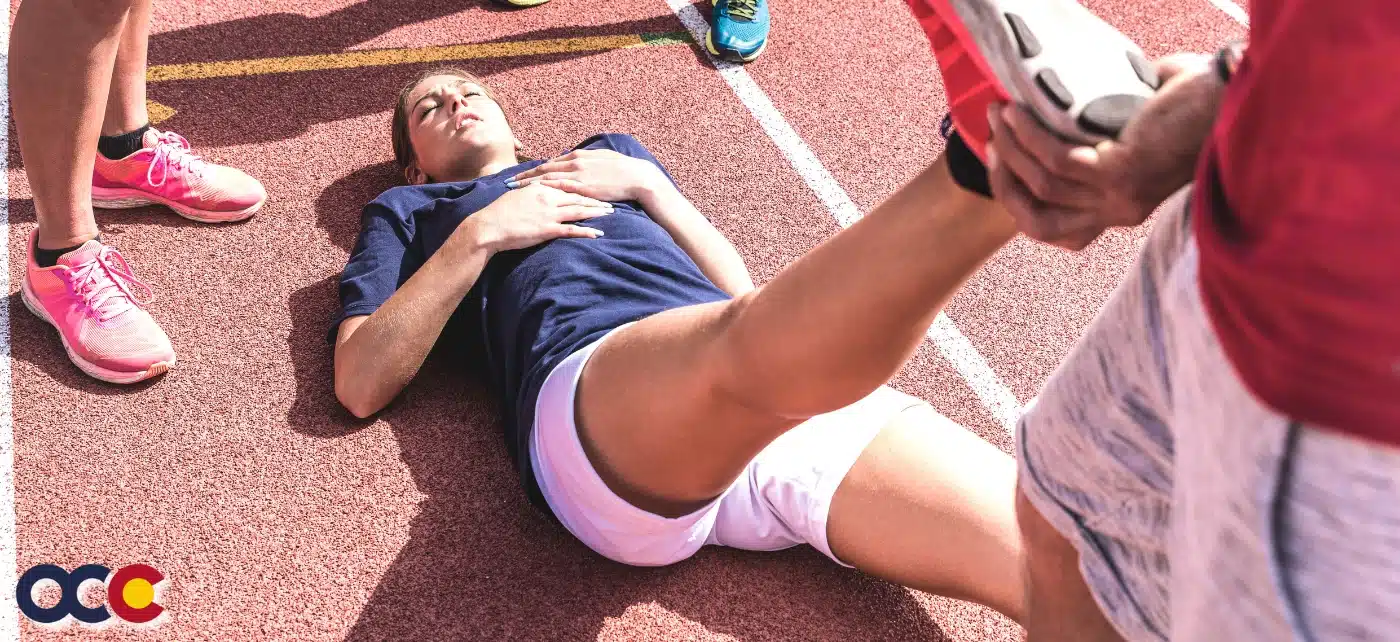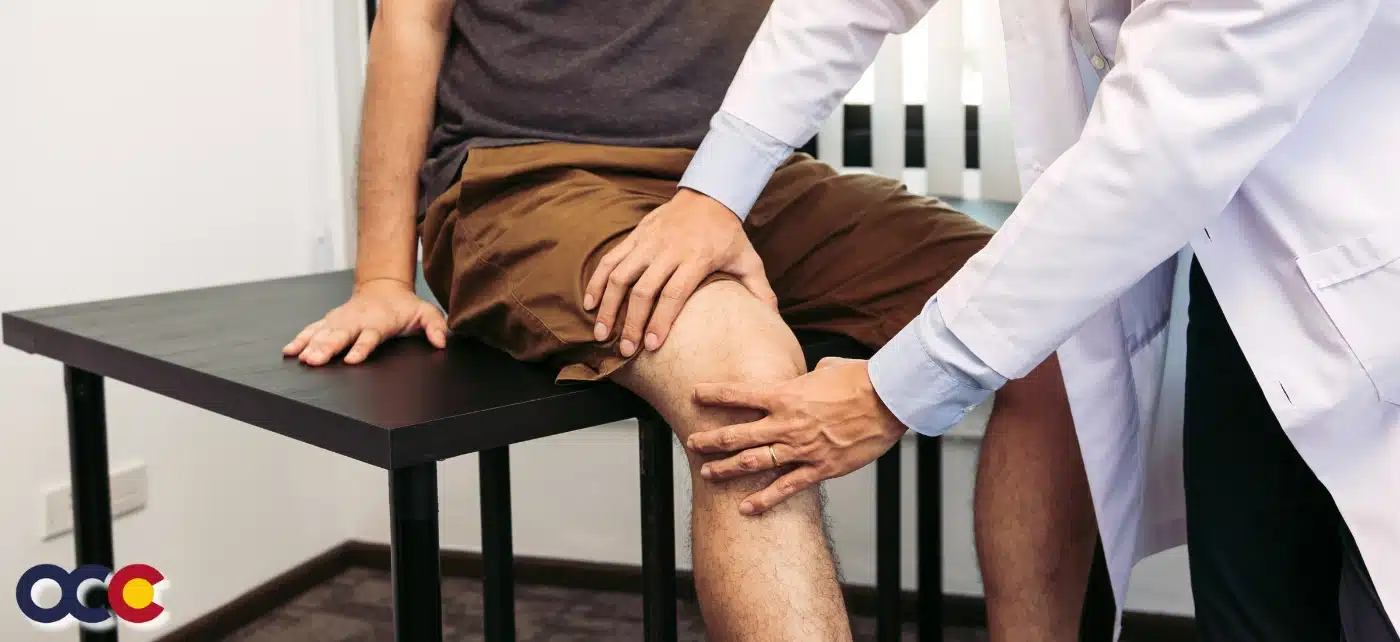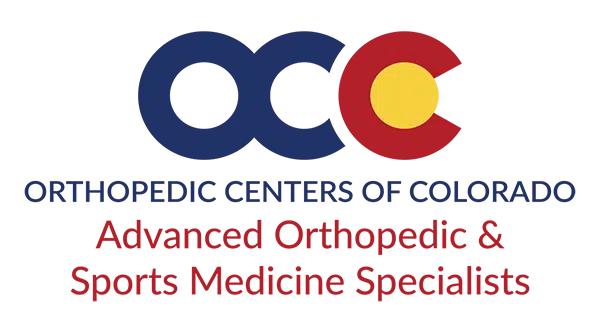[av_textblock size=” av-medium-font-size=” av-small-font-size=” av-mini-font-size=” font_color=” color=” id=” custom_class=” template_class=” av_uid=’av-kv01zt7p’ sc_version=’1.0′ admin_preview_bg=”]
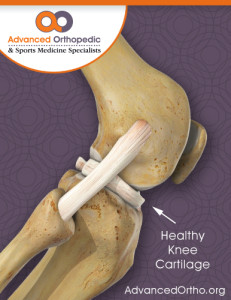
What is a meniscus tear?
Meniscus tears are one of the most common knee injuries. The menisci are the two “C” shaped pieces of cartilage that provide a cushion between the thighbone and the shinbone.
When the knee joint is quickly or severely twisted or torqued, the menisci cartilage can tear. People often hear a popping sound and experience lingering pain and swelling that is accompanied by a reduction or loss of normal joint function and mobility.
How are meniscus tears treated?
Depending on the severity of the tear, some meniscus injuries resolve with rest and ice. Arthritic-related meniscal tears can resolve with the treatment for underlying arthritis whereas other tears may require surgical treatment. The location and size of the tear, as well as the age of the patient, are major factors.
Younger patients are more likely to be considered for meniscus repair whereas adult treatments span from a meniscus trim to a full knee replacement. Your orthopedic specialist may use X-rays and MRI imagery to supplement a physical exam and confirm your diagnosis.
Non-surgical meniscus treatment
Some meniscus tears can be resolved without surgery. When a meniscus tear doesn’t impact a person’s range of motion, pain or instability can decrease with rest and time, and surgery may not be required. If the tear is related to arthritis in the knee, your doctor may recommend non-surgical treatments that help to manage your arthritis and, by extension, your meniscus.
Arthroscopy
Frequently, a micro camera and light (arthroscope) are surgically inserted into a small incision to examine and treat a meniscus tear. The camera provides enhanced joint imagery so that a surgeon can surgically assess and trim the damaged portion of the menisci.
Advanced Meniscus Surgical Options
If the meniscus tear is severe, or the result of advanced arthritis, treatment options may include a meniscus transplant or a total knee replacement that restores joint function with prosthetics.
Recovery
Rest and physical therapy play key roles in treatment for meniscus tears. Strengthening the muscles surrounding the joint supports both strength and range of motion. Your physician will shape the appropriate rehabilitation plan based on for your meniscus tear treatment. With the right treatment and rehab, many meniscus tear patients successfully return to active lifestyles.
Many meniscus tears result in immediate pain and reduced range of motion, but some are less apparent. Whether you have an acute injury or nagging knee pain that hasn’t gone away, contact an Advanced Orthopedic Sports Medicine Specialist to obtain a proper diagnosis and learn which meniscal tear treatment gives you the relief you’re looking for. Schedule an appointment with one of our specialists today:
[/av_textblock]
[av_heading heading=’Best Meniscus Surgeons’ tag=’h3′ style=” subheading_active=” show_icon=” icon=’ue800′ font=’entypo-fontello’ size=” av-medium-font-size-title=” av-small-font-size-title=” av-mini-font-size-title=” subheading_size=’15’ av-medium-font-size=” av-small-font-size=” av-mini-font-size=” icon_size=” av-medium-font-size-1=” av-small-font-size-1=” av-mini-font-size-1=” color=” custom_font=” subheading_color=” seperator_color=” icon_color=” margin=” margin_sync=’true’ padding=’10’ icon_padding=’10’ headline_padding=” headline_padding_sync=’true’ link=” link_target=” id=” custom_class=” template_class=” av_uid=’av-kv024r60′ sc_version=’1.0′ admin_preview_bg=”][/av_heading]
[av_one_third first min_height=” vertical_alignment=” space=” custom_margin=” margin=’0px’ padding=’0px’ border=” border_color=” radius=’0px’ background_color=” src=” background_position=’top left’ background_repeat=’no-repeat’ animation=” mobile_breaking=” mobile_display=” av_uid=’av-q082ph’]
[av_image src=’https://advancedortho.org/wp-content/uploads/2013/01/ferrari_feature1.png’ attachment=’789′ attachment_size=’full’ align=’center’ styling=” hover=” link=” target=” caption=” font_size=” appearance=” overlay_opacity=’0.4′ overlay_color=’#000000′ overlay_text_color=’#ffffff’ copyright=” animation=’no-animation’ av_uid=’av-jhhxhm0t’ custom_class=” admin_preview_bg=”][/av_image]
[av_textblock size=” font_color=” color=” av-medium-font-size=” av-small-font-size=” av-mini-font-size=” av_uid=’av-jhhxeat7′ custom_class=” admin_preview_bg=”]
Dr. James Ferrari
[/av_textblock]
[av_button label=’Meet Dr. Ferrari’ link=’post,587′ link_target=” size=’small’ position=’center’ label_display=” icon_select=’yes’ icon=’ue80a’ font=’entypo-fontello’ color=’theme-color’ custom_bg=’#444444′ custom_font=’#ffffff’ av_uid=’av-jhhxi5li’ custom_class=” admin_preview_bg=”]
[/av_one_third]
[av_one_third min_height=” vertical_alignment=” space=” custom_margin=” margin=’0px’ padding=’0px’ border=” border_color=” radius=’0px’ background_color=” src=” background_position=’top left’ background_repeat=’no-repeat’ animation=” mobile_breaking=” mobile_display=” av_uid=’av-nqxrhh’]
[av_image src=’https://advancedortho.org/wp-content/uploads/2013/01/gersoff_feature1.png’ attachment=’790′ attachment_size=’full’ align=’center’ styling=” hover=” link=” target=” caption=” font_size=” appearance=” overlay_opacity=’0.4′ overlay_color=’#000000′ overlay_text_color=’#ffffff’ copyright=” animation=’no-animation’ av_uid=’av-jhhxij00′ custom_class=” admin_preview_bg=”][/av_image]
[av_textblock size=” font_color=” color=” av-medium-font-size=” av-small-font-size=” av-mini-font-size=” av_uid=’av-jhhxeat7′ custom_class=” admin_preview_bg=”]
Dr. Wayne Gersoff
[/av_textblock]
[av_button label=’Meet Dr. Gersoff’ link=’post,590′ link_target=” size=’small’ position=’center’ label_display=” icon_select=’yes’ icon=’ue80a’ font=’entypo-fontello’ color=’theme-color’ custom_bg=’#444444′ custom_font=’#ffffff’ av_uid=’av-jhhxizy0′ custom_class=” admin_preview_bg=”]
[/av_one_third]
[av_one_third min_height=” vertical_alignment=” space=” custom_margin=” margin=’0px’ padding=’0px’ border=” border_color=” radius=’0px’ background_color=” src=” background_position=’top left’ background_repeat=’no-repeat’ animation=” mobile_breaking=” mobile_display=” av_uid=’av-ff6v9h’]
[av_image src=’https://advancedortho.org/wp-content/uploads/2017/10/c_motz_feature.png’ attachment=’5800′ attachment_size=’full’ align=’center’ styling=” hover=” link=” target=” caption=” font_size=” appearance=” overlay_opacity=’0.4′ overlay_color=’#000000′ overlay_text_color=’#ffffff’ copyright=” animation=’no-animation’ av_uid=’av-jhhxmfvx’ custom_class=” admin_preview_bg=”][/av_image]
[av_textblock size=” font_color=” color=” av-medium-font-size=” av-small-font-size=” av-mini-font-size=” av_uid=’av-jhhxeat7′ custom_class=” admin_preview_bg=”]
Dr. Cary Motz
[/av_textblock]
[av_button label=’Meet Dr. Motz’ link=’post,5799′ link_target=” size=’small’ position=’center’ label_display=” icon_select=’yes’ icon=’ue80a’ font=’entypo-fontello’ color=’theme-color’ custom_bg=’#444444′ custom_font=’#ffffff’ av_uid=’av-jhhxmxgf’ custom_class=” admin_preview_bg=”]
[/av_one_third]
[av_one_third first min_height=” vertical_alignment=” space=” custom_margin=” margin=’0px’ padding=’0px’ border=” border_color=” radius=’0px’ background_color=” src=” background_position=’top left’ background_repeat=’no-repeat’ animation=” mobile_breaking=” mobile_display=” av_uid=’av-dnizjp’]
[av_image src=’https://advancedortho.org/wp-content/uploads/2013/01/motz_feature1.png’ attachment=’795′ attachment_size=’full’ align=’center’ styling=” hover=” link=” target=” caption=” font_size=” appearance=” overlay_opacity=’0.4′ overlay_color=’#000000′ overlay_text_color=’#ffffff’ copyright=” animation=’no-animation’ av_uid=’av-jhhxncdx’ custom_class=” admin_preview_bg=”][/av_image]
[av_textblock size=” font_color=” color=” av-medium-font-size=” av-small-font-size=” av-mini-font-size=” av_uid=’av-jhhxeat7′ custom_class=” admin_preview_bg=”]
Dr. H. Andrew Motz
[/av_textblock]
[av_button label=’Meet Dr. Motz’ link=’post,601′ link_target=” size=’small’ position=’center’ label_display=” icon_select=’yes’ icon=’ue80a’ font=’entypo-fontello’ color=’theme-color’ custom_bg=’#444444′ custom_font=’#ffffff’ av_uid=’av-jhhxntha’ custom_class=” admin_preview_bg=”]
[/av_one_third]
[av_one_third min_height=” vertical_alignment=” space=” custom_margin=” margin=’0px’ padding=’0px’ border=” border_color=” radius=’0px’ background_color=” src=” background_position=’top left’ background_repeat=’no-repeat’ animation=” mobile_breaking=” mobile_display=” av_uid=’av-ch1x91′]
[av_image src=’https://advancedortho.org/wp-content/uploads/2015/07/newman_feature.png’ attachment=’1976′ attachment_size=’full’ align=’center’ styling=” hover=” link=” target=” caption=” font_size=” appearance=” overlay_opacity=’0.4′ overlay_color=’#000000′ overlay_text_color=’#ffffff’ copyright=” animation=’no-animation’ av_uid=’av-jhhxogt8′ custom_class=” admin_preview_bg=”][/av_image]
[av_textblock size=” font_color=” color=” av-medium-font-size=” av-small-font-size=” av-mini-font-size=” av_uid=’av-jhhxeat7′ custom_class=” admin_preview_bg=”]
Dr. Justin Newman
[/av_textblock]
[av_button label=’Meet Dr. Newman’ link=’post,1971′ link_target=” size=’small’ position=’center’ label_display=” icon_select=’yes’ icon=’ue80a’ font=’entypo-fontello’ color=’theme-color’ custom_bg=’#444444′ custom_font=’#ffffff’ av_uid=’av-jhhxrh9o’ custom_class=” admin_preview_bg=”]
[/av_one_third]
[av_one_third min_height=” vertical_alignment=” space=” custom_margin=” margin=’0px’ padding=’0px’ border=” border_color=” radius=’0px’ background_color=” src=” background_position=’top left’ background_repeat=’no-repeat’ animation=” mobile_breaking=” mobile_display=” av_uid=’av-8yi0wl’]
[av_image src=’https://advancedortho.org/wp-content/uploads/2013/01/papillion_feature1.png’ attachment=’797′ attachment_size=’full’ align=’center’ styling=” hover=” link=” target=” caption=” font_size=” appearance=” overlay_opacity=’0.4′ overlay_color=’#000000′ overlay_text_color=’#ffffff’ copyright=” animation=’no-animation’ av_uid=’av-jhhxslv7′ custom_class=” admin_preview_bg=”][/av_image]
[av_textblock size=” font_color=” color=” av-medium-font-size=” av-small-font-size=” av-mini-font-size=” av_uid=’av-jhhxeat7′ custom_class=” admin_preview_bg=”]
Dr. John Papilion
[/av_textblock]
[av_button label=’Meet Dr. Papilion’ link=’post,605′ link_target=” size=’small’ position=’center’ label_display=” icon_select=’yes’ icon=’ue80a’ font=’entypo-fontello’ color=’theme-color’ custom_bg=’#444444′ custom_font=’#ffffff’ av_uid=’av-jhhxt1oa’ custom_class=” admin_preview_bg=”]
[/av_one_third]
[av_social_share title=’Share this entry’ style=” buttons=” share_facebook=” share_twitter=” share_pinterest=” share_gplus=” share_reddit=” share_linkedin=” share_tumblr=” share_vk=” share_mail=” av_uid=’av-pl8bew’]
